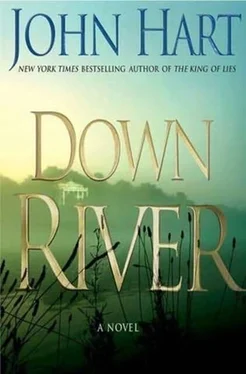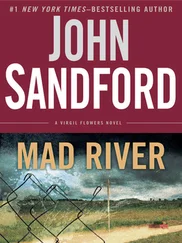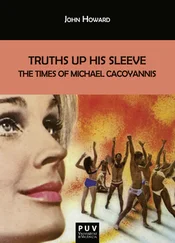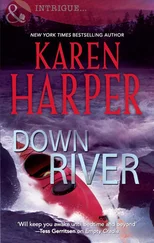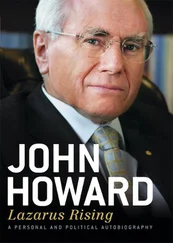He ignored me, began to strip down his rifle. “She asked me for a cup of coffee. Take her one, would you?”
I didn’t know what was wrong with my mother, only that the light had died out of her. She’d always been warm and fun, a friend on the long days that my father worked the land. We played games, told stories. Laughed all the time. Then something changed. She went dark. I’d lost count of the times I’d heard her crying, and was scared by the many times that my words to her had fallen into a blank-eyed silence. She’d wasted down to nothing, her skin stretched tight, and I feared that one day I might see her bones if she passed before an undraped window.
It was scary stuff, and I knew what none of it meant.
I entered the quiet house, smelled the coffee my mother liked. I poured a cup, and was careful on the stairs. I spilled none of it.
Until I opened her door.
The gun was already against her temple, her face hopeless and white above the pale pink robe she wore.
She pulled the trigger as the door swung wide.
My father and I never talked about it. We buried the woman we loved, and it was like I’d always known: death and blood was part of what it took to go from boy to man.
I killed a lot of deer after that.
I found Dolf on the porch, rolling a cigarette. “Morning,” I said, and stood against the rail, watching his deft and busy fingers. He studied me as he licked the paper and ran the cigarette between his fingers one last time. He took a match from his shirt pocket, struck it with a thumbnail. His eyes settled on the pistol still tucked under my belt. He blew out the match.
“That mine?” he asked.
I pulled out the pistol and set it on the table. The sweet tobacco smell surrounded me as I bent, and his face looked etched in the sharp light. “Sorry,” I said.
He picked up the gun and sniffed the barrel; then he laid it back down. “No harm done.” He leaned back in the chair and it creaked beneath him. “Five years is a long time,” he said casually.
“Yep.”
“Guess you came home for a reason. Want to tell me about it?”
“No.”
“Maybe I can help you.”
It was a good offer. He meant it. “Not this time, Dolf.”
He gestured downriver. “I smelled the fire. Thought maybe I could see the glow, too.”
He wanted to talk about it, wanted to know, and I didn’t blame him.
“Sound travels down the river.” He took a drag. “I can smell the smoke on you.”
I sat in the rocker next to his and put my feet up on the rail. I looked once again at the gun and then at Dolf’s coffee cup. I thought of my mother and of the white deer.
“Somebody’s hunting the property,” I said.
He rocked slowly. “It’s your father.”
“He’s hunting again? I thought that he’d sworn it off.”
“Sort of.”
“What does that mean?”
“There’s a pack of wild dogs hanging around. They showed up after the first of the cattle was shot. They smell blood from miles off. Find the carcasses at night. They’ve got a taste for it now. We can’t seem to drive them off. Your father is determined to kill every last one of them. It’s his new religion.”
“I thought that cattle had been shot at only once.”
“That’s all we reported to the sheriff. It’s more like seven or eight times now.”
“What kind of dogs?” I asked.
“Hell, I don’t know. Big ones. Little ones. Dirty, skulking bastards. They’re all mean as hell. But the leader-damn-now he’s something else. Looks like a cross between a German shepherd and a Doberman. Hundred pounds, maybe. Black. Fast. Smart as hell. Doesn’t matter where your father comes from, how quiet he is, that black one always sees him first. Fades away. Your old man can’t get a shot. Says that dog’s the devil himself.”
“How many in the pack?”
“Maybe a dozen at first. Your old man killed two or three. It’s down to five or six now.”
“Who killed the others?”
“That black one, I think. We found ’em with their throats torn out. All males. Rivals, I guess.”
“Jesus.”
“Yep.”
“Why aren’t you reporting the shootings?”
“Because the sheriff is useless. He was useless five years ago and he’s found no reason to change, far as I can tell. First time we called him, he walked once around the carcass, then suggested that it might be best for all concerned if your father just sold. That about settled it for your dad and me.”
“Is anybody still at the hospital?”
“They won’t let us see her, so no point hanging around. We came home a few hours ago.”
I stood up, walked to the corner of the porch. The sun was rising above the treetops. I debated how much to tell Dolf, decided he ought to know everything. “It was Zebulon Faith,” I said. “Him or Danny. They’re the ones that did it.”
Dolf was silent for a long moment. I heard his chair creak again and felt his footsteps on the old floor. He stood next to me and put his hands on the rail, looked out to where a low mist was rising from the river.
“Wasn’t Zebulon Faith,” he said.
I turned, not sure what to think; he picked a piece of tobacco off of his tongue as I waited for him to explain. He took his time about it.
“He’s mean enough to do it, I reckon, but he went in for prostate cancer three years ago.” He looked at me. “The old boy can’t get it up anymore. He’s impotent. No lead left in the pencil.”
“How can you know that?” I asked.
Dolf sighed, kept his eyes on the river. “We had the same doctor, got diagnosed about the same time; we went through it together. Not like we were friends or anything, but we talked once or twice.” He shrugged. “Just one of those things.”
“Are you sure?”
“Pretty much.”
I thought about Dolf fighting off a cancer while I struggled for meaning in some faraway city I had no business being in. “I’m sorry, Dolf.”
He spit out another piece of tobacco, shrugged off my sympathy. “What makes you think it was one of them?” he asked.
I told him everything I knew: Danny’s ring, the fire, my fight with Zebulon Faith.
“Maybe a good thing you didn’t kill him,” Dolf said.
“I wanted to.”
“Don’t blame you.”
“Could have been Danny that did it.”
Dolf thought about it, spoke with reluctance. “Most people have a dark streak in them somewhere. Danny is a good enough kid in a lot of ways, but his streak is closer to the surface than most.”
“What do you mean?”
He studied me. “I spent a lot of years watching you swing at shadows, Adam. Lashing out. Untouchable in a lot of ways. It killed me to see you like that, but I could understand it. You saw things no boy should see.” He paused and I looked away. “When you’d come home bloodied up, or when your dad and I bailed you out, there was always a sadness in you, a quietness. Damn, son, you’d look all but lost. That’s a hard thing for me to say to you, but there it is. Now Danny, he was different. He’d have this look of barely restrained glee. That boy, he got in fights because he enjoyed it. Big damn difference.”
I didn’t argue. In a lot of ways, Danny’s dark streak formed the bedrock of our friendship. I’d met him six months after my mother killed herself. I was already fighting, cutting school. Most of my friends had pulled away from me. They didn’t know how to handle me, had no idea what to say to a boy whose mother blew her own head off. That hurt, too, but I didn’t whine about it. I pulled deeper into myself, gave up on everybody. Danny came into my life like a brother. He had no money, bad grades, and an abusive father. He hadn’t seen his mother or a square meal in two years.
Читать дальше
